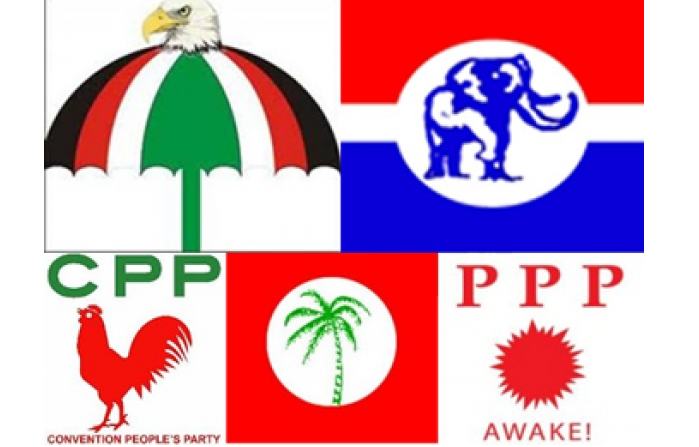
Where are the manifestoes hiding?
A manifesto is an important benchmark for measuring the performance of an incumbent government or incoming government as far as accountability to the electorate is concerned.
Advertisement
In other words, a manifesto is a business plan that political parties are expected to prosecute when elected into office.
It is, therefore, very unfortunate that with Election 2016 just three months away, most political parties, especially the two major contenders, the ruling National Democratic Congress (NDC) and the dominant opposition party, the New Patriotic Party (NPP), are campaigning for the mandate of the electorate without manifestos.
Indeed, the electorate need to know what the political parties are offering by way of policy choices long before elections are held.
But this is not the case in Ghana, with only 99 days to the December 7 crucial polls.
What are the issues?
Why are the manifestos of the political parties late in coming out? Where are the manifestos hiding? With the absence of clearly defined policy options, what then will constitute the issues the Ghanaian voter will rely on to make informed policy choices?
A campaign to get the political parties to bring out their manifestos must begin now with the countdown to the polls.
If for nothing at all, manifestos are key documented reference points for holding our political actors accountable. So far, what most of the political parties are engaged in are at best “empty platitudes” as they jump from place to place with campaign promises which will be most difficult to track.
Even worse, it will be very difficult for the electorate to pin the parties down on their promises, since the parties can easily deny the claim of promise.
Recent findings from a research conducted by IMANI Ghana on campaign promises and how the parties are going to achieve those targets have engendered controversy, with the parties up in arms against the group.
I trust that if the manifestos of political parties are out, spelling out in detail how set targets will be attained, most of these controversies could be avoided.
Clearly, manifestos could be compared to pledged intentions set out by political parties and how those intentions will be realised.
A committed political party going by the rules of engagement must endeavour to provide important policy options in a well-documented manner. This is necessary because making public their manifestos will also enhance the chances of the parties, since floating voters may also buy into some of the policies in the manifestos and give their support to the parties.
More worrying
In election years, political activities always peak, but with barely three months to this year’s polls, more worrying is the fact that only a few of the 26 or so registered political parties have managed to publish and unveil thier manifestos. They are the Progressive People’s Party (PPP), the Independent People’s Party (IPP) and the United Progressive Party (PPP).
Many reasons have been adduced for why the manifestos are still not out.
There is even the argument that Ghanaians are not a reading public. But this argument that we are not a reading public is neither here nor there and cannot be used to justify why the manifestos are not out.
Another argument being made by some of those who have failed to make public their manifestos is that they have not done so for fear that their opponents will ‘parrot’ or copy their ideas.
This, too, is untenable. Parties can have similar ideas on the same issues but their approaches to solutions may differ. After all, Ghanaians face the same challenges such as poverty, unemployment, high inflation, high interest rates, high prices of foodstuffs, high rent, high utility tariffs, health and educational challenges, and poor infrastructure.
Even if the argument of copying is true, let us see the contents of the manifestos and look at which party has copied its opponent’s ideas.
Since manifestoes form an integral part of the policies of political parties, the citizenry definitely need them to make informed choices during elections.
All that we are saying is the manifestos must come out now. This is because with an increasing disconnect between citizens and their elected leaders, there cannot be any further delay in the release of political party manifestos.
Decline in political activism
Already, in my view, there is a decline in political activism because most of the political parties have failed to adhere to their own rules of engagement and political party laws are being flouted left, right and centre.
If our political parties themselves are behaving irresponsibly, then how would they expect the electorate to cooperate with them? Political parties, in my view, must do well to, at least, respect the electorate who will give them the mandate to steer the affairs of state on their behalf.
These are the challenges confronting our democratic political parties.
Parties in emerging democracies
Studies have shown that healthy and open party-based communications provide effective channels for public participation, structure citizens’ electoral choices and connect leaders and elected officials to the common good.
Since the commencement of the Fourth Republican journey in December 1992, political parties have been managing, with difficulty, to build their capacities to represent the citizenry and provide them with policy choices that will demonstrate their ability to govern in the public interest and good.
The issue is even more pronounced in between elections when there is an increasing disconnect between the citizenry and their elected leaders.
Clearly, vibrant, strong and sustainable political parties are essential to building a functional thriving democracy in an emerging democratic state such as Ghana.



